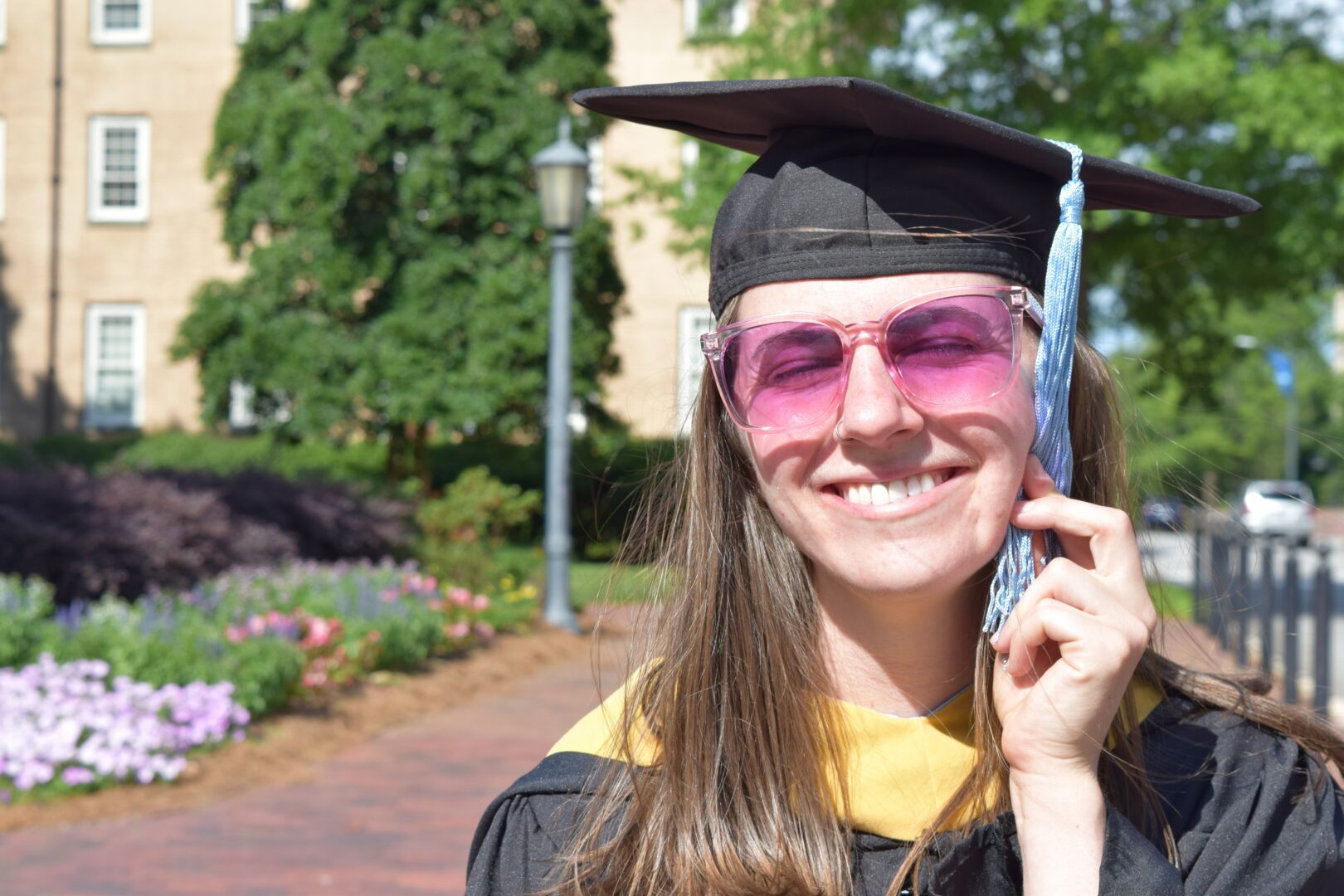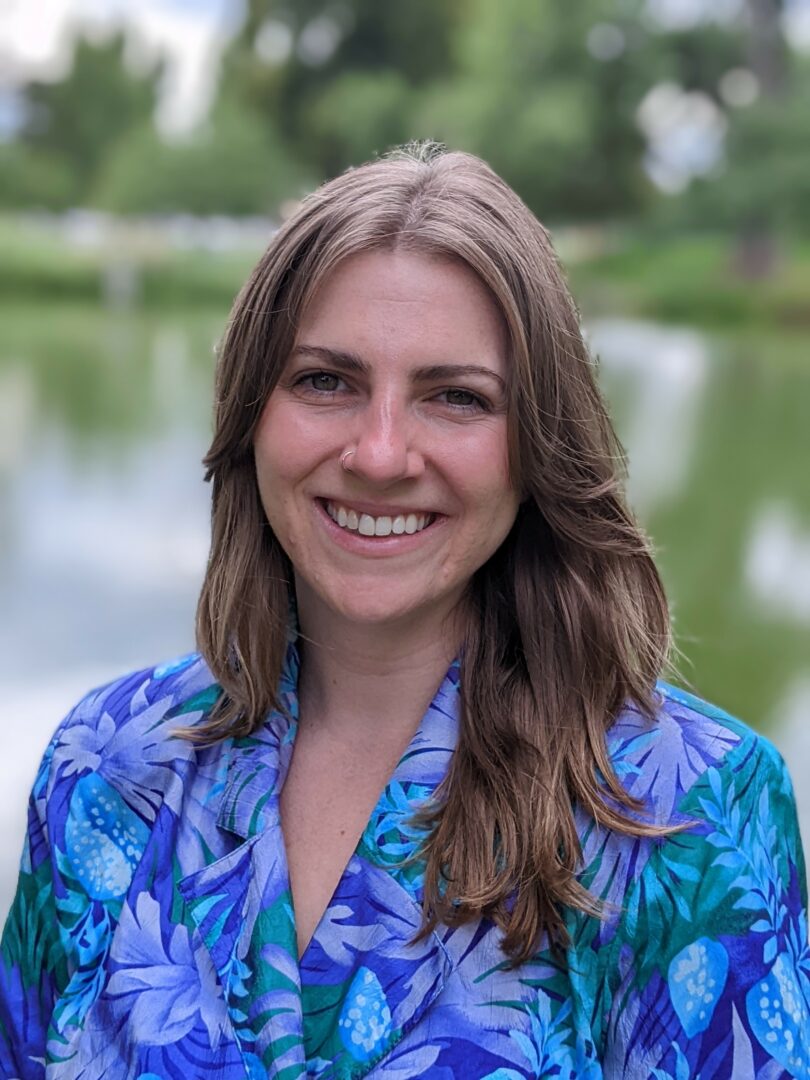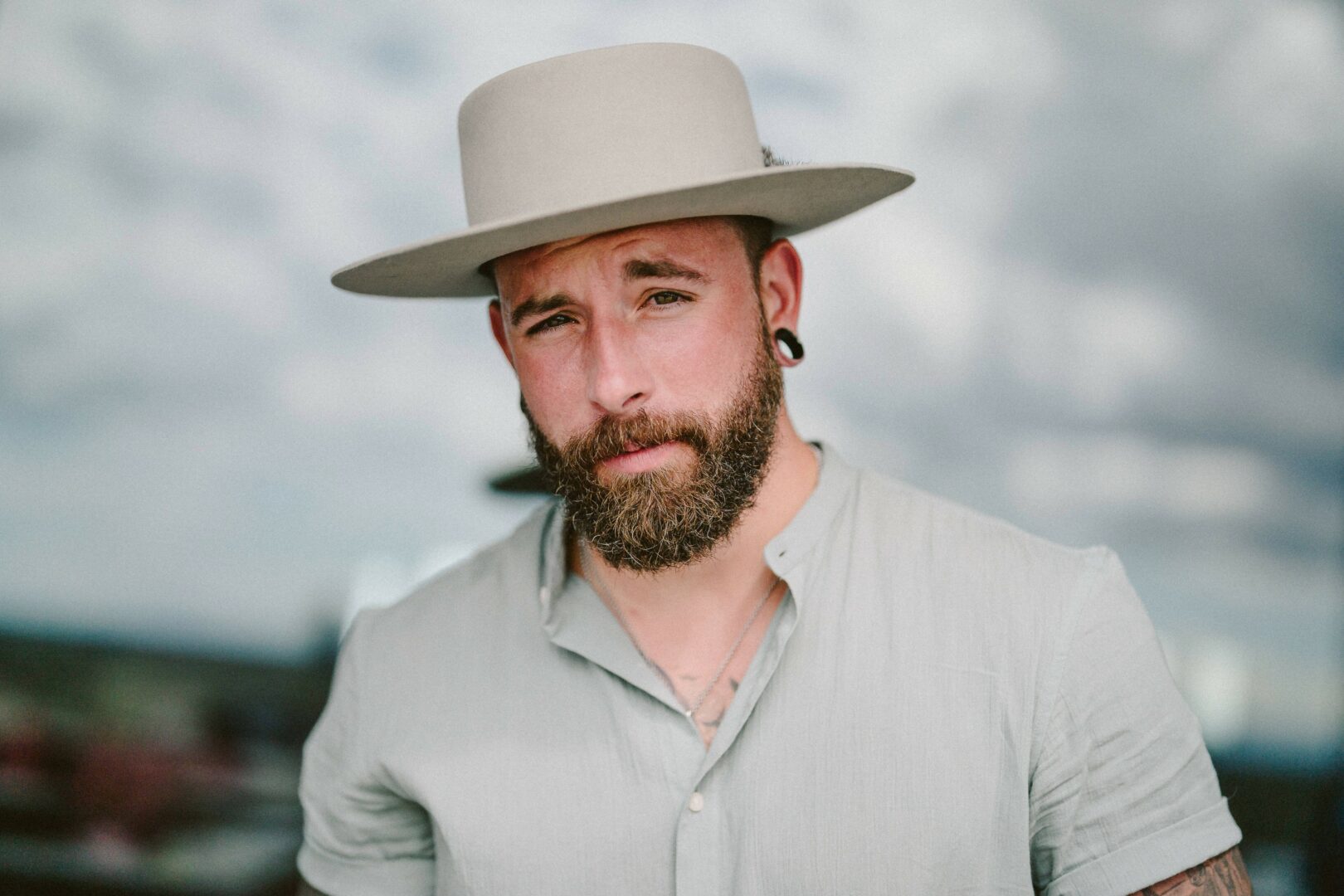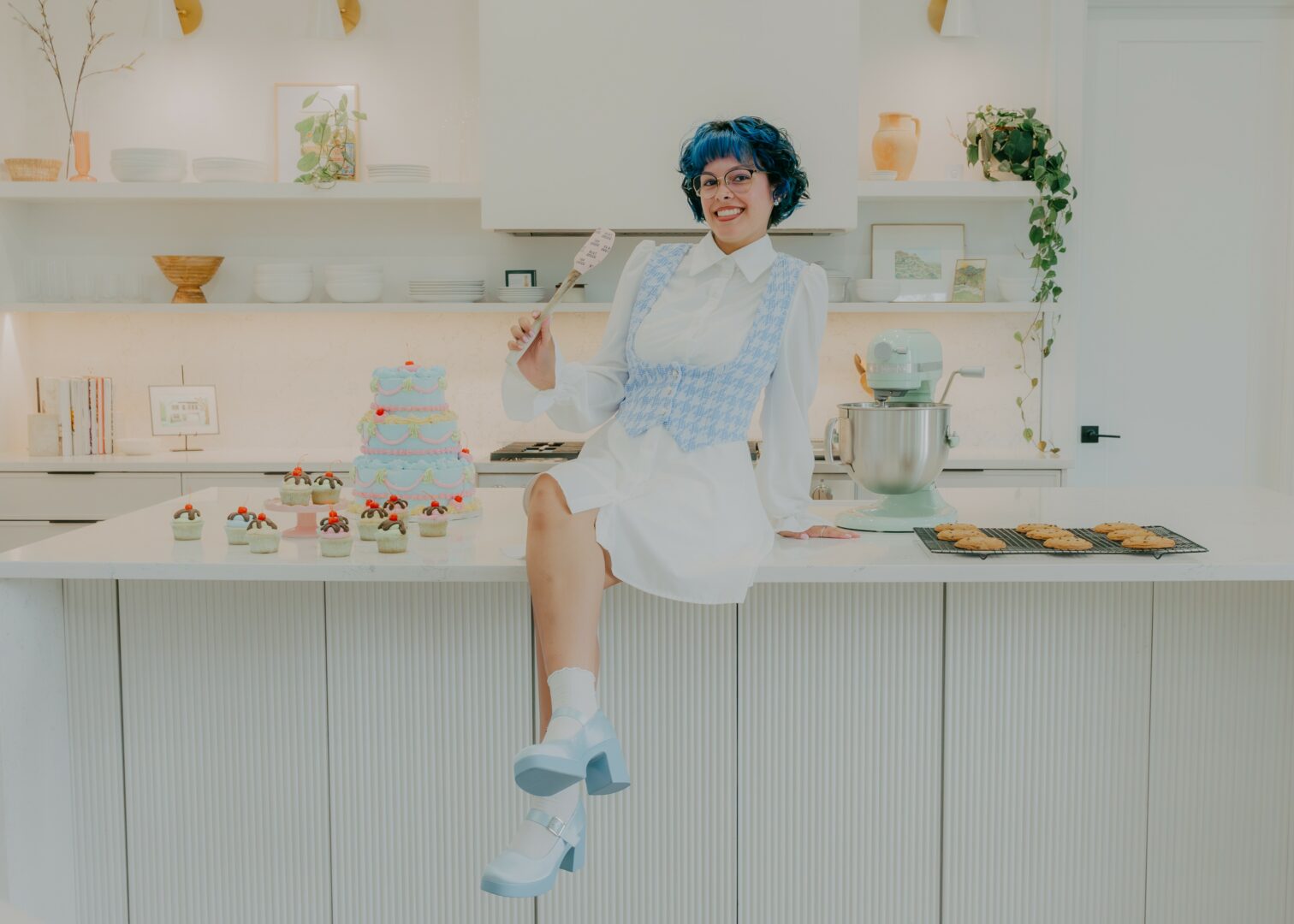Alright – so today we’ve got the honor of introducing you to Martha Carter. We think you’ll enjoy our conversation, we’ve shared it below.
Hi Martha, we’re so appreciative of you taking the time to share your nuggets of wisdom with our community. One of the topics we think is most important for folks looking to level up their lives is building up their self-confidence and self-esteem. Can you share how you developed your confidence?
I’m still developing my confidence and self-esteem, but it’s come a long way since I was a little kid. I’m a survivor of complex trauma that absolutely ruined my confidence and self-esteem. It made me feel small, unworthy of love and affection, and like nothing I do will be okay or enough. Since I was a toddler, I felt like my authentic self wasn’t worth paying attention to. I was worried the more people would interact with me, the more likely it was they’d realize they don’t like me, or I was a bad egg… so I did my best to hide in plain sight.
The impact of trauma can be sneaky, because we learn to be “true” about ourselves so early on that we don’t even consider the possibility that they aren’t facts. Naturally, these beliefs bleed into everything we do, how we see the world, and how we hold ourselves. The insidious beliefs that kept me small and insecure for many years were “I’m not capable”, “everything I do is wrong”, and “I’m inherently bad”. And I didn’t question them, I assumed they were cold hard facts.
Thankfully, my relationship with myself has evolved since then. To explain how I grew my confidence, I have to tell you about my journey of becoming a therapist. In college, I was struggling with severe anxiety and God knows what else, and it all made my grades plummet. I felt totally lost, like my dreams were silly and I could never do what I truly wanted, which at the time, was to be a nurse. I was embarrassed about how I was doing in school, and felt like I was a total failure when I was surrounded by people who excelled in college with ease. I began seeing a therapist to improve my mental health and began uncovering the ways my past shaped the way I perceived myself, keeping me in shame and self-loathing. I felt like I was seeing the world and myself with fresh eyes. That’s when I realized therapy is what I really wanted to pursue, not nursing.
My GPA was wrecked and I only had two years of school left after spending two on pre-nursing requirements. If I wanted to graduate in four years, I needed to choose a major I could complete quickly. And if I wanted to go to graduate school to become a therapist, I needed to focus on improving my GPA and getting to know professors so I could get strong references. After much deliberation, I decided the best approach was to study art. The classes were small so I could easily get acquainted with the professors, I already completed a few classes in the major so I had a better chance of finishing in two years, and had done well in those classes so it would be good for my GPA. When I shared what I thought was a brilliant plan with people in my life, some were shocked and didn’t understand how it would help me become a therapist. They told me it didn’t make sense, and wondered why in the world I would study art instead of something like psychology if I wanted to be a therapist? They thought I was illogical and naïve.
I’d love to tell you I immediately proved them wrong, but I didn’t. After facing their criticism and doing my best to trust myself anyways, my application was rejected. I was shaken, and my old beliefs came creeping in, saying “Of course this didn’t work! Everyone was trying to tell you it would never happen, and they were right! Why would you ever think this would work out? You’re a failure!”.
By the grace of some resilient part of me, I chose to carry on with my plan despite this unexpected obstacle. I found a job at an eating disorder treatment program, and it confirmed my love for people and mental health. I decided to roll the dice again and apply to graduate school once more, and this time I was accepted. I had trusted my gut, and everything worked out.
Getting into grad school after following my unique and widely criticized plan was a defining moment in my journey to fostering confidence. It proved to me that I could trust my own process. It reminded me I know myself best, I am capable of making good decisions, and my approach is viable, even if others don’t get it. This moment allowed me to let go of tired beliefs and start taking more and more risks. Since getting into grad school, I‘ve moved to Colorado without knowing anyone, quit my comfy job to start my own business, actually had fun meeting people instead of overthinking everything, and many more extraordinary things. That little girl never thought she would be capable of extraordinary things and yet, here I am.
People think that confidence is a trait you either have or don’t, but actually, it is something you foster over time. You have to nurture and tend to it regularly—by taking risks, following your instinct, and often, working through trauma that contributes to your insecurity.
I’ve learned confidence isn’t about waiting until I am perfect enough to feel comfortable showing myself off. Confidence is about relating to myself with loving kindness and compassion. It’s about seeing my imperfections with clarity, and knowing I’m still worthy. It’s embracing my strengths and preferences with open arms. It’s a thrilling, vulnerable, uncomfortable, life-giving experience. It’s about being able to say “I know not everyone will like these pants, but by golly I love them so I am going to wear them anyways because that’s what will make me happy!”.

Thanks, so before we move on maybe you can share a bit more about yourself?
I am a somatic trauma therapist based in Colorado specializing in all forms of trauma including complex and relational trauma, emotional abuse and neglect, people pleasing, attachment wounds, and chronic anxiety. I see clients throughout Colorado via tele-health. For over 6 years I have helped people find relief from the constant tension of worrying someone will leave you because you didn’t want tacos for lunch or you wanted to meet in the middle rather than driving all the way to them for once. There’s nothing I love more than helping people foster confidence so they can feel solid in their opinions, preferences, and needs without being weighed down by guilt or anxiety.
What makes my work unique is my somatic approach because it capitalizes on our nervous system’s natural structure to make deeper changes, faster than talk therapy. Somatic therapy is all about feeling rather than just talking. While traditional talk therapy focuses on processing thoughts and emotions verbally, somatic therapy taps into the wisdom of your body to help you heal.
Here’s why this approach is so powerful: most of the communication in our nervous system flows from the body to the brain—not the other way around. That’s why it’s nearly impossible to think your way out of feeling anxious, and why talk therapy has its limits. Somatic therapy works with this natural design, helping you access and regulate your nervous system from the inside out. It’s a gentle, yet transformative way to address the effects of trauma and find relief where talk therapy might hit a wall.
I see people for weekly/biweekly therapy, and also have a new and exciting offering called intensives. Therapy intensives are basically longer sessions, usually ranging from 2-4 hours, and are intended to provide more therapy in less time, meaning they are more time and cost efficient. Imagine doing 6 months’ worth of therapy in just one day—that’s how powerful intensives can be. Intensives are great options for people who don’t have time for weekly therapy, want unrushed time to process, or are going through a big life change and want extra support. You can learn more on my website: marthacartertherapy.com
If you had to pick three qualities that are most important to develop, which three would you say matter most?
Looking back, the three qualities that have been most impactful in my life are creativity, resilience, and resourcefulness. My path hasn’t been straightforward or easy—it’s been filled with obstacles, missteps, and low points. But my creativity has allowed me to approach challenges with fresh ideas and unconventional solutions, helping me navigate what might have otherwise felt like dead ends. Resilience has kept me grounded and determined even when things didn’t go as planned, pushing me to see failures not as a sign to stop but as an invitation to try again. And my resourcefulness has opened doors I never thought possible, teaching me to find opportunities in unexpected places and make the most of what’s available.
To anyone whose confidence is fading in the face of hurdles or challenges, I’d encourage you to lean into these qualities. Get curious about creative solutions instead of assuming there’s only one way forward. Build your resilience by reminding yourself that setbacks are not the end—they’re a part of the process. And never underestimate the power of resourcefulness—sometimes, what you already have at your fingertips is more valuable than you realize. Most importantly, trust yourself. Your unique approach to life’s challenges is not only valid but valuable, and it will carry you further than you might think.
Before we go, any advice you can share with people who are feeling overwhelmed?
When I feel overwhelmed, I lean into the practices that help me stay embodied and grounded, like yoga or weight lifting, nourishing my body adequately, breathing techniques, and attending therapy. Equally important is rest and checking in with myself often. Overwhelm can creep in when I’m not paying attention to what I need, so I’ve made it a habit to pause, ask myself how I’m feeling, and honor whatever my body and mind are asking for. As a recovering people pleaser, this is not always easy, so I have to be intentional about staying attuned to myself and tending to my needs.
I’ve also learned the importance of knowing when to ask for help. Overwhelm isn’t something I have to navigate alone, and reaching out to trusted people or professionals has been a huge part of staying balanced. One mantra I work to embody in these moments is “I will figure it out.” It’s a simple phrase, but it helps me lean into self-trust and remind myself that I am capable, even when things feel messy. These practices aren’t a magic fix, but they create a foundation of support and connection that helps me find my way through, no matter how hard life gets.
Contact Info:
- Website: https://marthacartertherapy.com
- Instagram: https://www.instagram.com/therapy.with.martha/
- Other: https://www.psychologytoday.com/us/therapists/martha-carter-denver-co/1061265
so if you or someone you know deserves recognition please let us know here.




